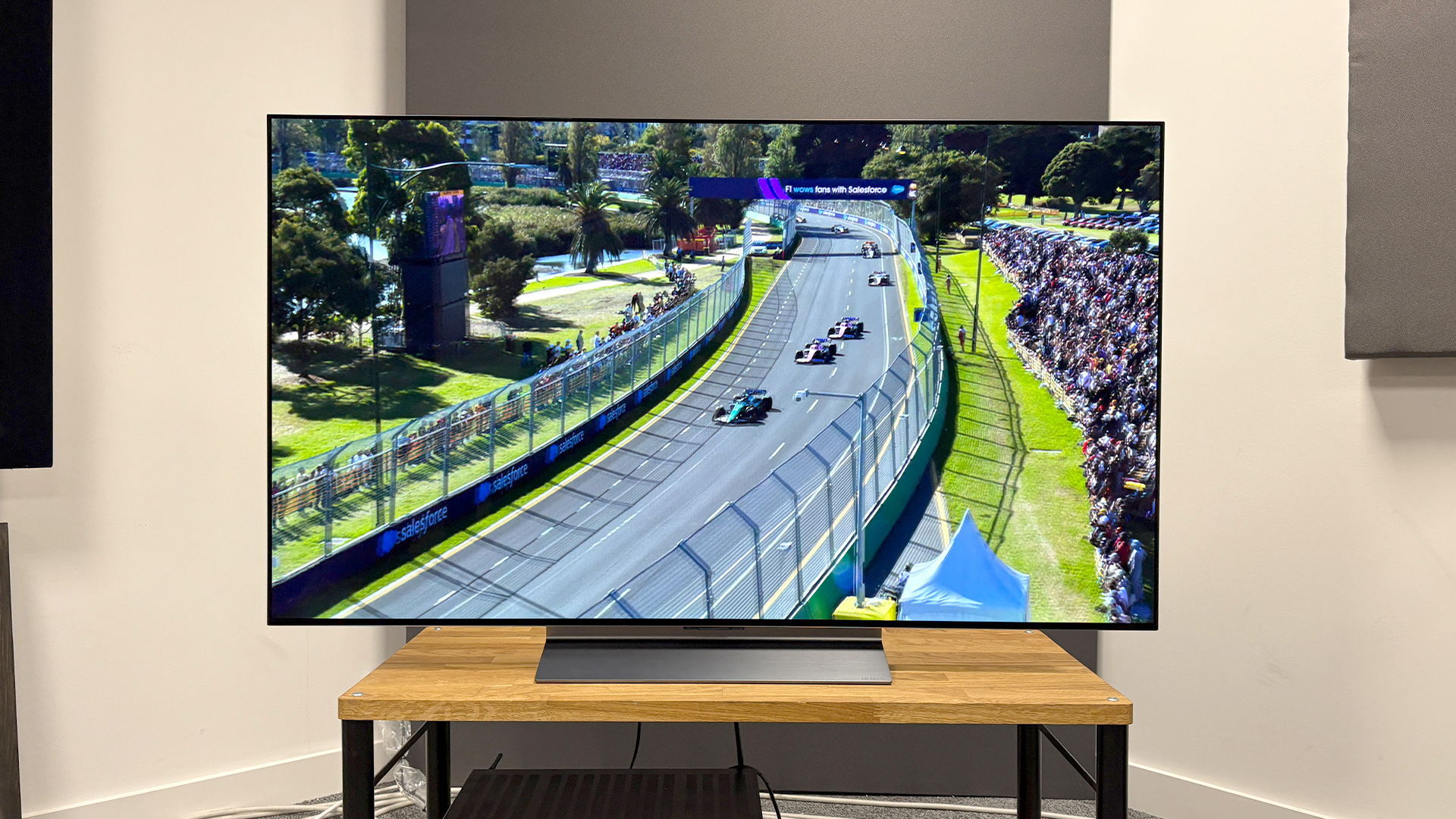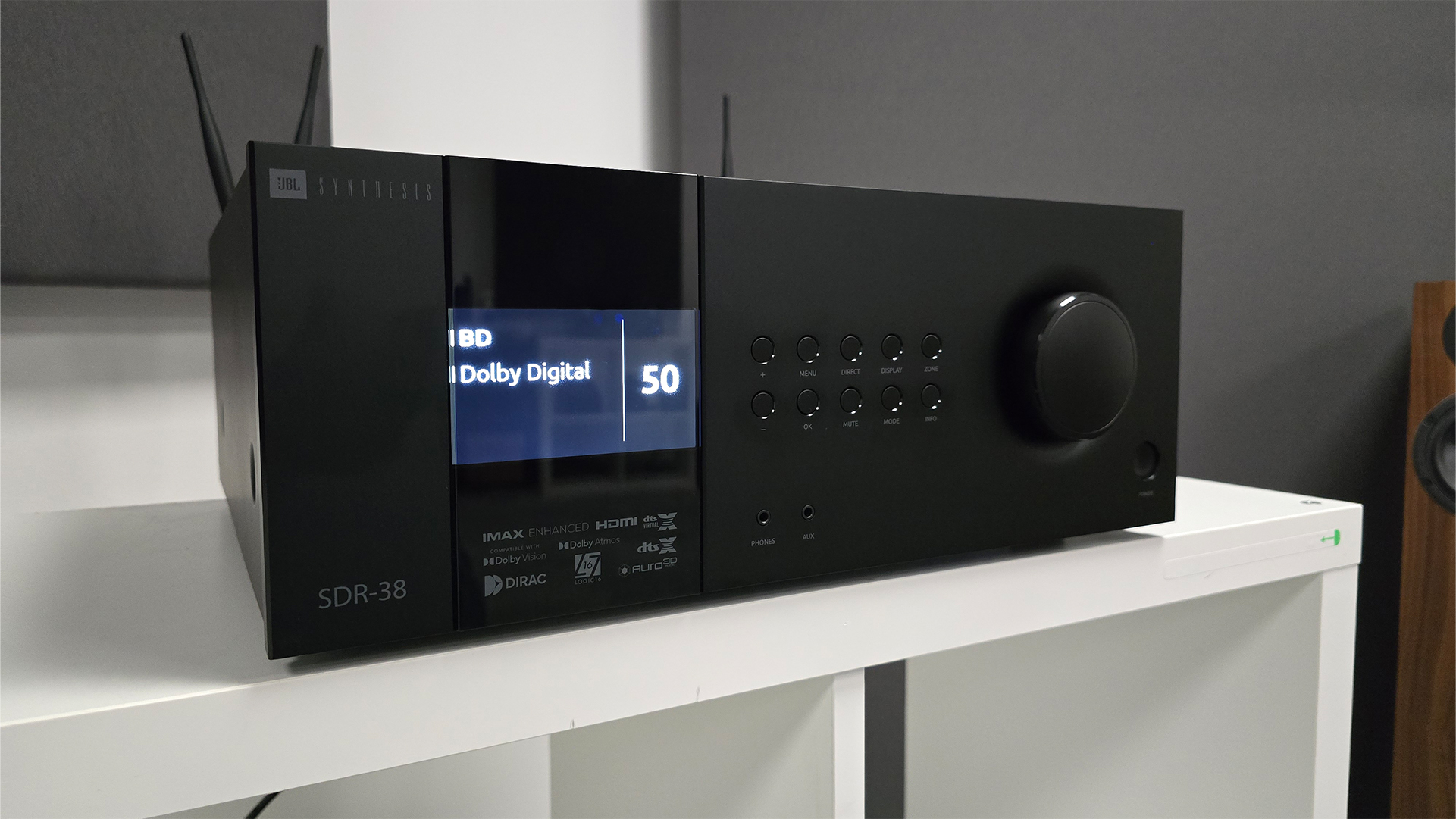What Hi-Fi? Verdict
LG's latest C-series OLED TV delivers a rich, punchy and crisp image that's easy to enjoy, while its four HDMI 2.1 sockets continue its legacy as a go-to gaming TV – we just wish it sounded a bit better
Pros
- +
Rich, solid and engaging picture that balances vibrancy and authenticity
- +
Excellent contrast and image solidity
- +
Uncompromising feature set
Cons
- -
Sound is good rather than great
- -
Design is overly familiar
- -
Non-backlit remote is frustrating
Why you can trust What Hi-Fi?
LG’s popular C-series TVs have long been the go-to, easy-to-recommend OLEDs that suit people’s needs and exceed their expectations. Its success is due to a simple yet thoroughly effective formula that pairs exceptional picture quality with an uncompromising feature set, all while undercutting its flagship G-series TVs and mid-range OLEDs from rival brands such as Sony and Panasonic.
It’s no wonder that LG has seen such success with its prior C-series models, but it has been using this formula for quite some time, and with the OLED market constantly evolving to include new panel technology, we can’t help but wonder if LG is resting on its laurels. Clearly, we needn’t worry too much, as the C4 proved to be an improvement over the C3 despite having minimal upgrades on paper, and that also appears to be a similar situation with the C5, which we have before us today.
The OLED55C5 doesn’t feature the flashy new Primary RGB Tandem OLED panel of its bigger brother, the G5, nor does it get the MLA OLED technology of last year’s G4, but it’s here to prove that we needn’t write “traditional” OLED TVs off quite yet. And despite having a fairly diminutive list of upgrades over its five-star predecessor on paper – in fact, LG only really highlights a claimed brightness increase and new AI-focused software features – the C5’s under-the-hood upgrades are what really make it another compelling mid-range OLED TV.
12th March 2025
We originally published this review on 5th March but because LG hadn't announced the pricing at that point, we couldn't give the TV a star rating. Thankfully, pricing has just been announced so we have updated the pricing section below, edited the rest of the review accordingly and added the star rating.
Price

The LG OLED55C5 that we have before us today costs £1900 / $1999 (we're awaiting pricing for Australia). That's the same price as its predecessor. While a price decrease would have made this TV a sweeter deal, we certainly prefer this outcome over a higher price tag.
Taking a look at the wider OLED TV market, many manufacturers are still to confirm pricing for their 2025 mid-range OLED models, meaning we can't draw any direct comparisons with the upcoming Philips OLED810 or Samsung's S90F. However, we do have some benchmark TVs from 2024 that we can compare it with, such as the Award-winning Sony Bravia 8.
The 55-inch Bravia 8 launched at a steeper £2199 / $2000 / AU$3495, but it can now be found for closer to £1499 / $1400 / AU$2995. While that price disparity may seem like a slight on the C5, we've historically seen LG OLEDs drop drastically in price during their annual life span. For instance, the 55-inch C4 is now widely available for just £1199 / $1200 / AU$2195, and we expect to see the C5 follow a similar pricing pattern.
Build

It’s a good job that LG nailed the design of its mid-level OLED TVs with 2022’s C2, as it has kept an almost identical aesthetic for the following three generations. We’d struggle to distinguish the last four generations from one another if it weren’t for LG slightly adjusting the colour of the stand each year.
The latest hi-fi, home cinema and tech news, reviews, buying advice and deals, direct to your inbox.
It’s worth noting that the C5 comes in six screen sizes: 42, 48, 55, 65, 77 and 83 inches. The tabletop stand is swapped out for dual blade-style feet on the smallest model, while the largest version is bundled with a wider stand to accommodate the broader frame.
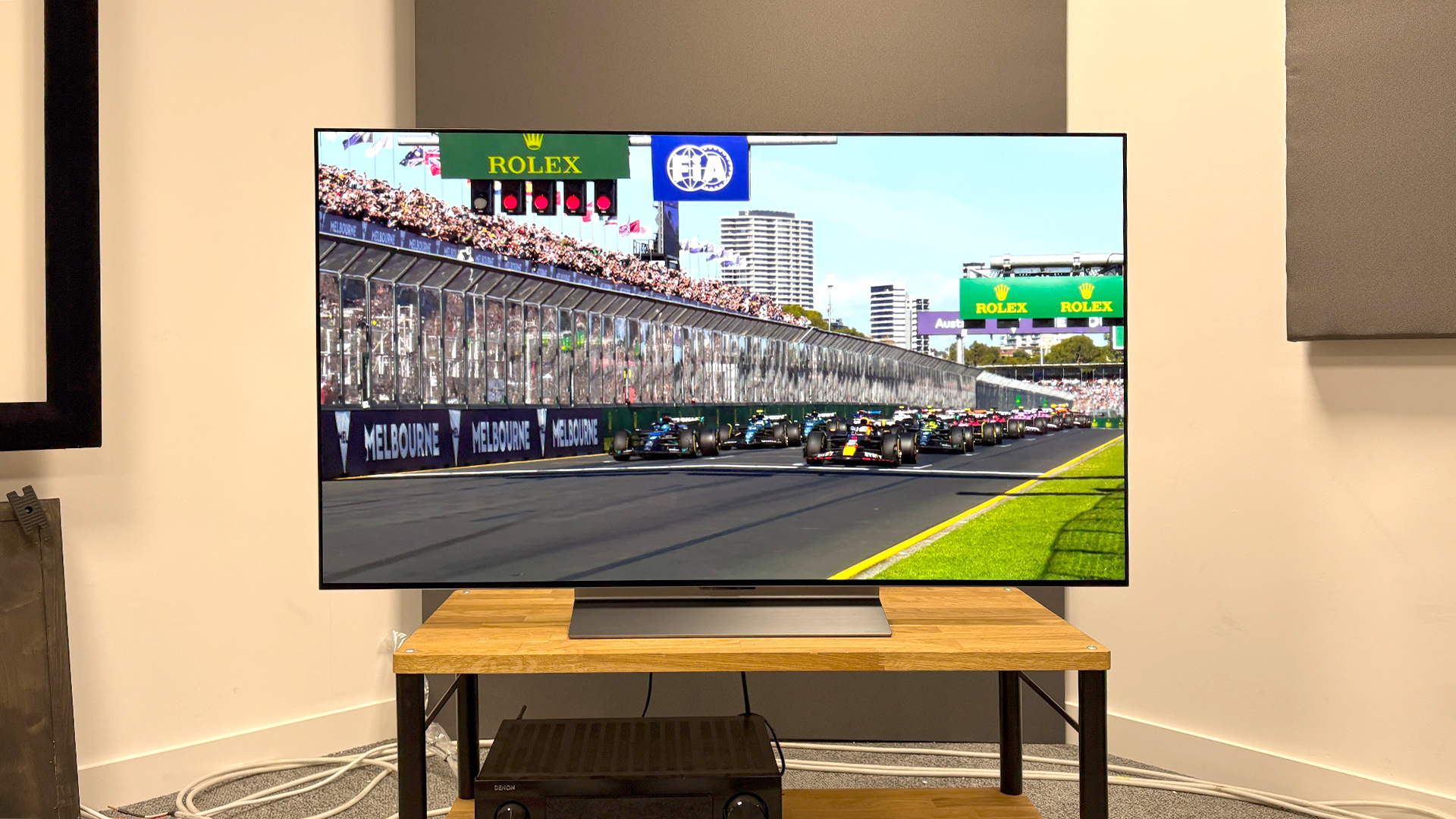
Screen size 55 inches (also available in 42in, 48in, 65in, 77in, 83in)
Type OLED
Backlight N/A
Resolution 4K
HDR formats HLG, HDR10, Dolby Vision
Operating system webOS 25
HDMI inputs x4 (4 x 48Gbps HDMI 2.1)
Gaming features 4K/120Hz, 4K/144Hz, VRR, ALLM, Dolby Vision game mode, HGiG
ARC/eARC eARC
Optical output? Yes
Dimensions (hwd, without stand) 70 x 122 x 4.5cm
The C5 retains the supremely slender side profile across much of the chassis, with a modest boxout that houses the connections and processing components near the bottom of the rear panel. On the front of the TV, we’re treated to slender bezels around the display and a narrow, central pedestal-style stand that is both stylish and slightly obstructive to those who wish to position soundbars below their TV, due to the fact it tapers outwards.
Moving away from the TV’s chassis, we have LG’s Magic Remote. This has been updated with a new AI shortcut button, and the input button is now a more generalised shortcut to take you to all connected devices, encompassing everything from games consoles and Blu-ray players to smart lightbulbs and LG’s ThinQ-enabled smart home appliances.
Unfortunately, the Magic Remote remains a disappointment, as it still doesn’t feature backlit buttons, and the clunky, plasticky build is beginning to grow tiresome, especially when the likes of Sony and Philips bundle in premium metal remotes with backlit buttons and rechargeable batteries. The pointer function remains, with a Nintendo Wii-style gesture system, which can be useful for inputting passwords, providing you have a steady hand. Those purchasing the C5 outside of the UK are treated to a more streamlined and modernised remote; we can only hope it comes to future LG OLED generations on this side of the pond.
Features

The C5 features a near-identical feature set as its predecessor. That, of course, means four full-bandwidth HDMI 2.1 sockets capable of handling up to 4K/144Hz signals with Variable Refresh Rate (VRR) and Auto Low Latency Mode (ALLM). This has been a noteworthy strength of LG OLED TVs for quite some years now, and it ensures the C5 remains ahead of much of the competition. For reference, we’ve had confirmation that Panasonic and Philips’ respective upcoming 2025 OLEDs will still feature just two of these sockets.
As for panel technology, we’ve already established that there is a new kid on the OLED block, but the C5 is consistent with previous C-series generations by sticking to a WOLED display – none of the fancy new four-stack brightness-boosting panel architecture here. Are we surprised? No, but we can’t help wondering if there was a surplus of unused MLA panels out there that could have found a home in this step-down range or if the now defunct production lines for those panels could have been put to good use.
Regardless, LG claims that the C5 is brighter than its predecessor, though it won’t share exact numbers relating to nits. We do know that its Brightness Booster engine is helping to squeeze every bit of luminance out of the OLED panel, though. As was the case with the C4, there is no heatsink in the C5. It’s worth noting that not all sizes of the C5 are made equal, as the brightness upgrades won’t be felt quite so greatly at the smaller 42- and 48-inch sizes – but we can delve deeper into that when we review those sizes of the C5.
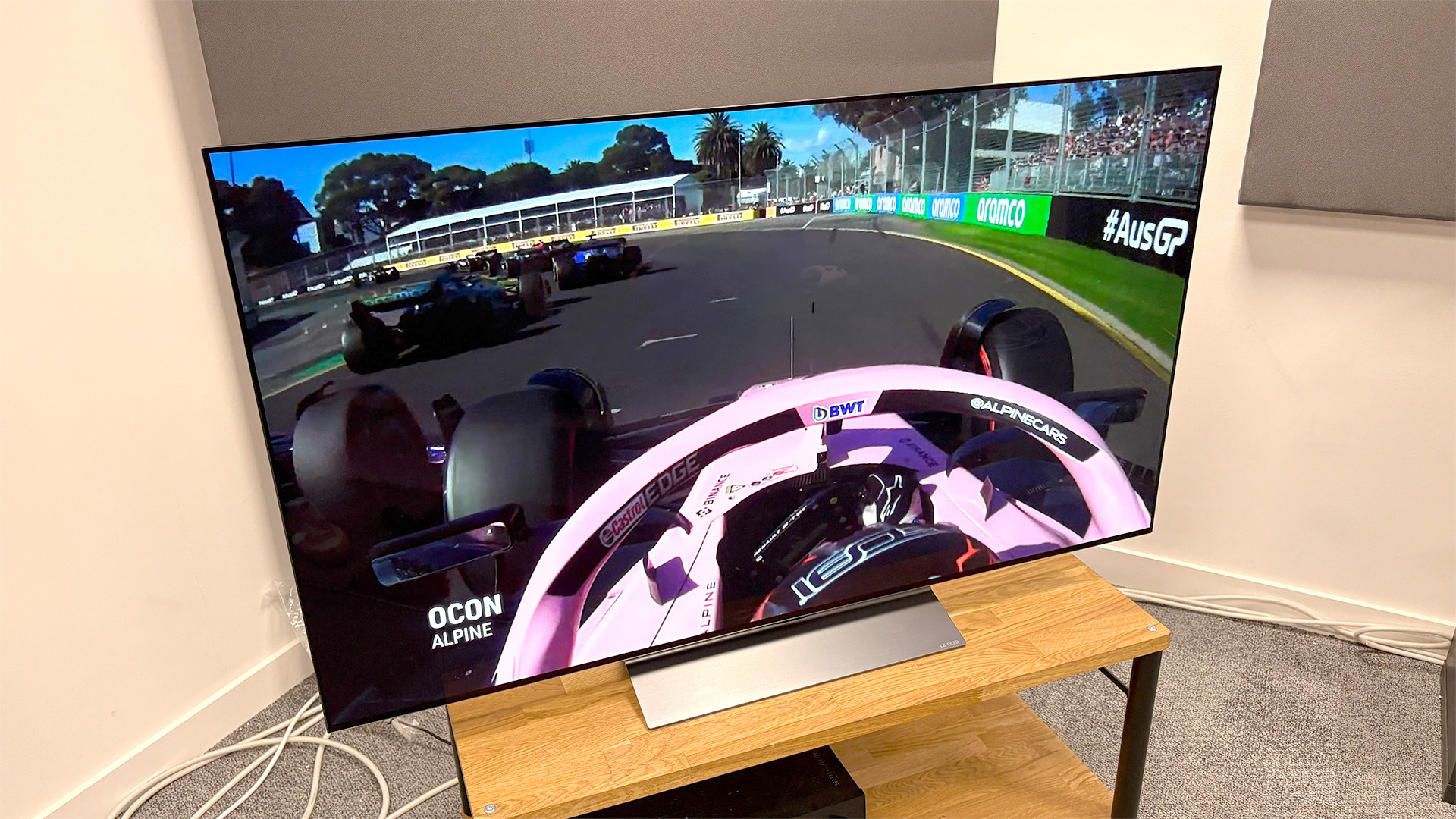
HDR support comes in the expected formats: HDR10, Dolby Vision and HLG – it should come as no surprise that the Samsung-derived HDR10+ format is absent. Dolby Atmos immersive audio is also supported via the HDMI eARC connection. As for built-in audio, the C5 features a 2.2 channel 40W speaker system with downward-firing drivers, which is an identical setup to its predecessor.
Powering the C5 is LG’s Alpha 9 Gen 8 processor, which unlocks a plethora of AI-focused features, including an intuitive chatbot system that can help you diagnose and troubleshoot problems with your TV in practically an instant. Want more vivid colours or for dialogue to be clearer? A press of the AI button and a request to boost colours or make speech clearer will fix those issues, and LG has implemented a large language model so that you don’t have to memorise and single out specific commands to achieve the settings you desire.
There is also a nifty voice recognition feature, which also comes courtesy of AI, that allows the TV to switch profiles seamlessly when you speak into the remote. A quick and painless setup process allows you to assign your voice to your profile; from there, you can speak into the remote, and the TV will automatically switch to your profile to show you personalised content recommendations if another person’s home page is currently on screen.
Speaking of the home screen, the C5 uses webOS 25, LG’s latest operating system. It doesn’t appear to be a radical departure from last year’s software version, aside from the aforementioned AI additions and some new gaming-centric apps, such as the Xbox app, which allows you to stream console-quality titles by simply connecting a Bluetooth controller directly to the TV. Elsewhere, the operating system supports a wide range of international and domestic streaming apps, including Netflix, Disney Plus, Apple TV+, Amazon Prime Video, BBC iPlayer and ITVX.
Picture
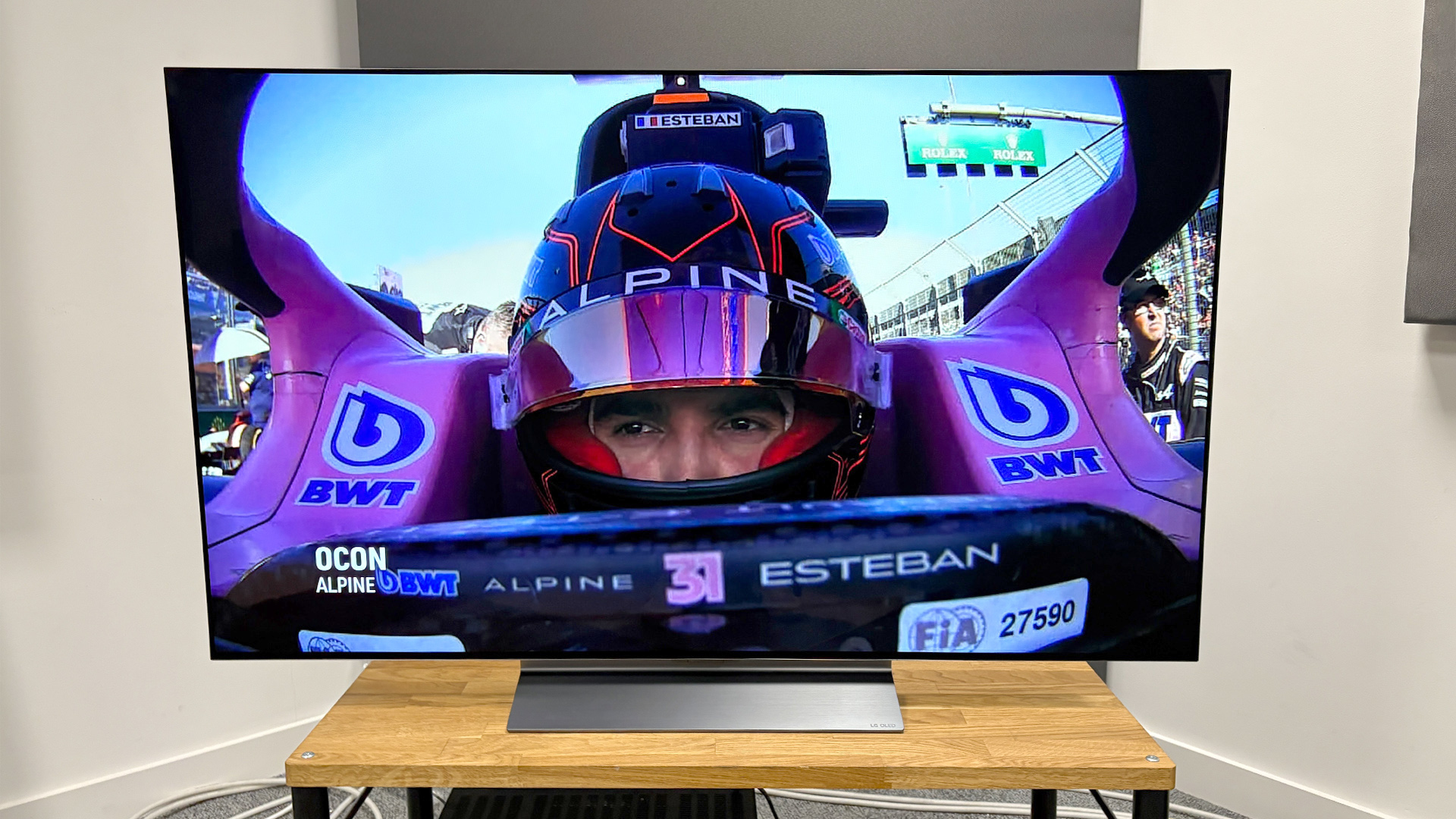
LG made strides in the picture department with the C4, which looked destined to win our TV Product of the Year Award last year before being pipped at the post by the Sony Bravia 8. A large draw of the C4 was its unfussy nature; whack it into Filmmaker mode and feed it some 4K content, and the chances are it would impress – so does the C5 keep this ethos alive?
We’re pleased to report that it does indeed, and while the C5 isn’t worlds apart from its predecessor in terms of picture performance, it’s a simply exquisite TV for watching movies. We stick with Filmmaker Mode (now imbued with the power of Dolby Vision HDR for the relevant content) for our testing, as it remains our preferred picture mode to deliver an accurate and balanced picture. Note: Dynamic tone mapping is switched off by default, and we would highly recommend switching it on for HDR10 content to experience the full brightness upgrade that the C5 offers.
We pair it with our trusty (and sadly discontinued) Oppo UDP-203 4K Blu-ray player and plenty of our favourite reference discs including Blade Runner 2049, Top Gun: Maverick and Pan, as well as John Wick: Chapter 4 on Netflix for Dolby Vision testing, and True Grit on Blu-ray to assess the C5’s upscaling capabilities. We also have the Sony A80L on hand as our reference TV to compare the LG too – we know that this isn’t the latest offering from Sony; however, it’s still widely available for purchase, and it remains a five-star TV in our eyes.
Starting with Blade Runner, there is a veritable feast of positive picture attributes. The C5’s colours are rich and punchy yet never look overdone or unnatural. Low light colour volume is a particular strength of the C5, as the tense confrontation between Officer K and Sapper Morton at the start of the film shows us. The dimly lit farmhouse appears atmospherically dingy, however, the brown sofa and orange armchair still feature rich hues and colour variation that our competing Sony set doesn’t quite capture.
This is also evident with skin tones. Both Ryan Gosling and Dave Bautista are presented with lively-looking skin tones, with a touch more red to their cheeks that makes all the difference. Both look slightly washed out and pale on the cooler-leaning Sony, though we suspect that the warmer-toned nature of the LG helps.
The picture's solidity and three dimensionality is also tested with Blade Runner, and we’re pleased to report that the LG is dangerously close to the Sony, which is renowned for its excellent contrast. Subjects stand out against the background to striking effect, with sharp, yet never over-etched or artificial-looking edges.
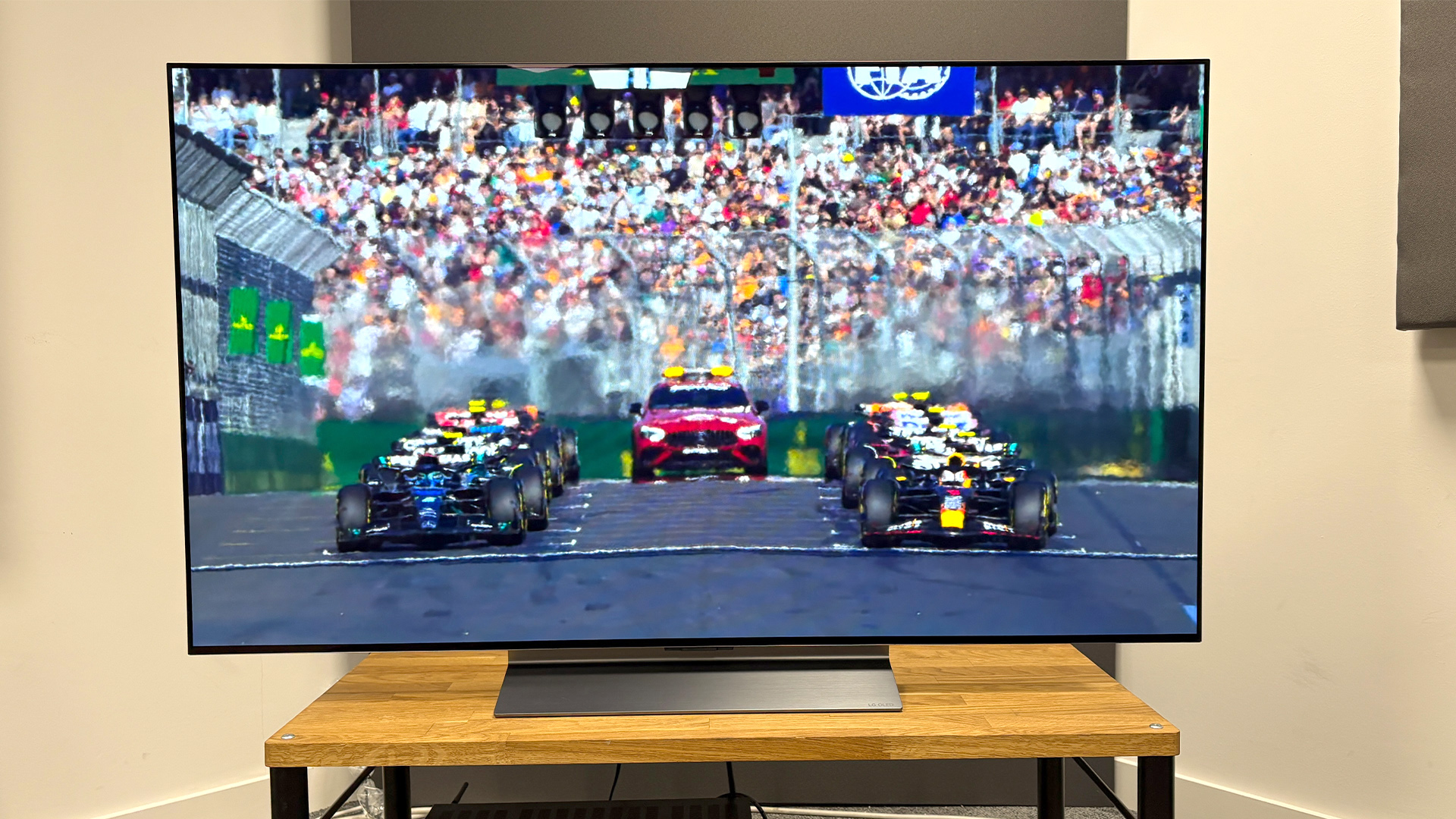
We’re most intrigued by how the C5 handles the extra brightness, and, unfortunately, there is no better film to explore this upgrade than Pan, which is mastered to a higher than usual nit count. Our testing sequence features a magical pirate ship gliding along a sea and then flying to an island, passing a few suspended bubbles of water on the way. Simply put, the C5 presents this scene with stunning brightness and lavish colours, and while it may not rival the highs of the QD-OLED or Micro Lens Array OLED sets available, it's evident that LG has pushed the limits of ‘traditional’ OLED even further than before.
The centre of each floating bubble of water glows with a vibrant greenish-blue hue, and the sunlight shimmers through the ship’s sails, illuminating the fabric patchwork to striking effect. Our reference Sony set is no slouch here, but in comparison with the C5, it almost looks dull. The combination of higher brightness, punchier colours and sharper details are tough to argue against, and while the Sony can be praised for looking slightly more natural, we think the LG looks more cinematic and engaging.
Rounding out our 4K Blu-ray tests with Top Gun: Maverick, we can assess motion. The LG handles fighter jets and Tom Cruise speeding down the road on his Kawasaki motorcycle with ease, and in our testing the set doesn’t appear to add any judder or stutter at all. It strikes a fine balance between looking natural and effectively combating any noticeable hitches, earning it plenty of brownie points from us.
Moving on to John Wick: Chapter 4 in Dolby Vision on Netflix, we get another insight into how the C5’s extra brightness headroom can impact low-light scenes. In the action-packed portion of the film that takes place in the Osaka hotel, we see a conversation play out on the rooftop under the cover of night. While there is some neon accent lighting in the scene, it's mostly dark, which the LG has no trouble handling. Colours remain punchy, and the subtle lighting illuminates the parts of the actors’ faces that are turned towards the light while casting the remainder in shadow; overall, it looks natural and effective. The Sony, on the other hand, appears to lack finesse, and to our eyes, it overbrightens the faces of the characters to compensate. Pair that with the cooler colour temperature, and faces appear a bit gaunt.
The rest of the sequence looks marvellous on the C5. Dark details are well presented, as we can differentiate between Wick’s black suit jacket, black shirt, and black tie with ease, even in the shadowier portions of the scene. The rich colours and slick motion also mean that the various art fixtures, flashy neon lights and spectacular feats of gun-fu (that's martial arts mixed with guns for the uninitiated) all look as stylish as we’d hope.
Taking things down to HD and SDR with True Grit on Blu-ray, we’re impressed by how much detail the C5 retains. The snowfall at the beginning doesn’t stray into looking fuzzy or blocky, while the fabric textures on the old western outfits are nicely detailed. The enhanced brightness is even apparent here, as the glaring sun beaming down on the Wild West town at the start of the film is replicated with the necessary intensity.
Sound
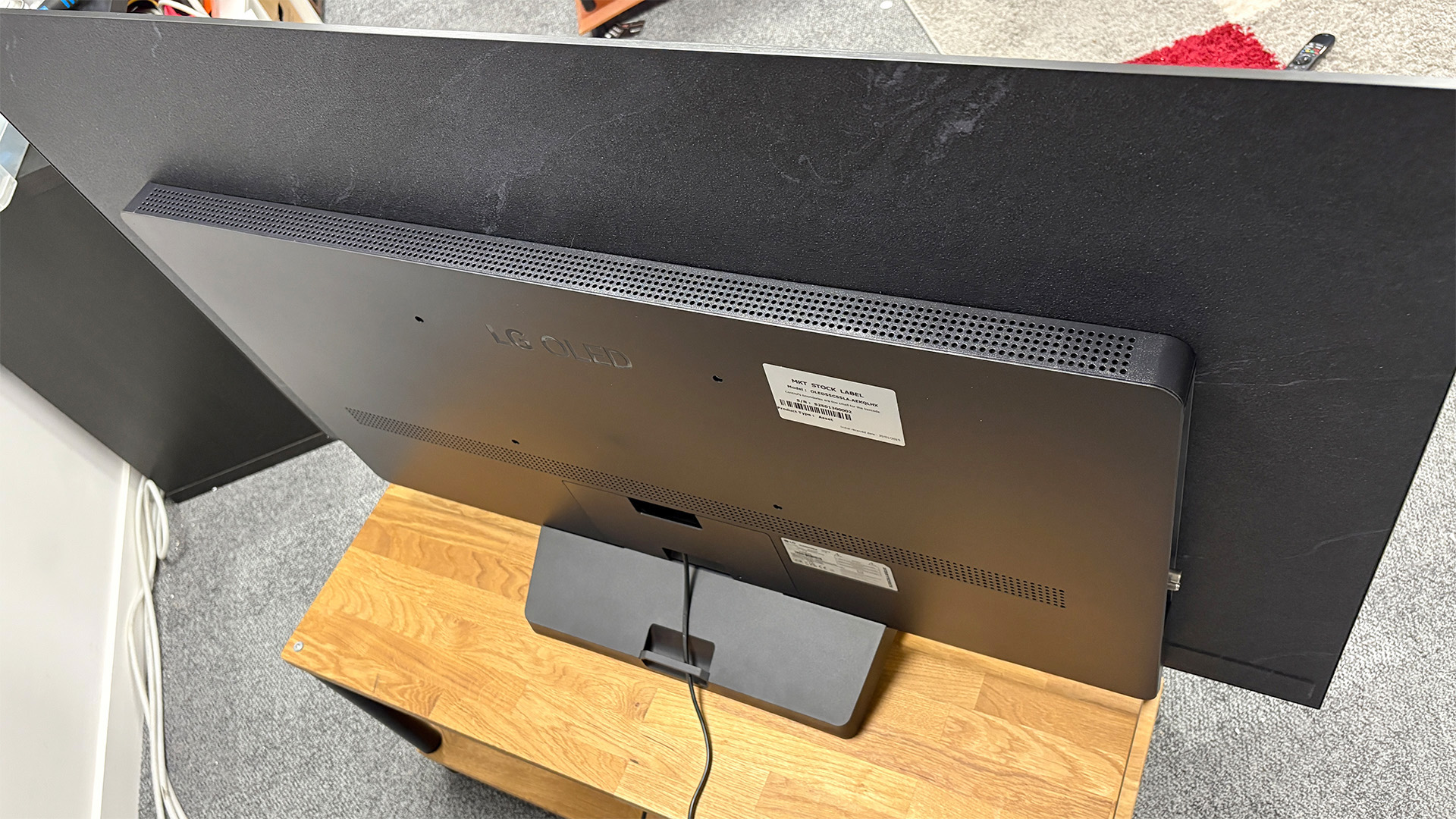
LG’s C-series TVs haven’t traditionally scored the highest marks when it comes to built-in audio quality, though the company did make some improvements with last year’s TV to make it more competitive amongst its peers from other brands. So, how does the C5 fare?
We deem the C5 to sound merely fine. It delivers dialogue with enough clarity for day-to-day use, and while it's not superbly dynamic, we appreciate that it's making an effort. Voices have some warmth and presence to them, and are outwardly projected enough to make them audible.
There is a semblance of atmospheric effects, with background murmurs in Officer K’s run-down apartment building coming across with decent detail, though we can’t really commend the C5’s upward-firing projection, as height effects seem to stick to the top edge of the TV’s chassis.
What’s really missing is a sense of low-end heft, as the booming Flight To The LAPD track that plays over Officer K’s descent into the dystopian rendition of Los Angeles seen in Blade Runner 2049 feels lightweight. Cranking the volume up to add some more oomph does garner some results, but it also introduces crackling into the mix.
We also can’t really find a nice thing to say about the AI Sound mode, which seems to perform in a way that backtracks the improvements we saw on the C4. It sounds aggressively harsh, with an unpleasantly abrasive edge that makes dialogue and effects sound forced – we’d recommend steering clear.
Ultimately, you’ll want to pair the C5 with a decent Dolby Atmos soundbar if you want a sound to match its impressive picture quality.
Verdict
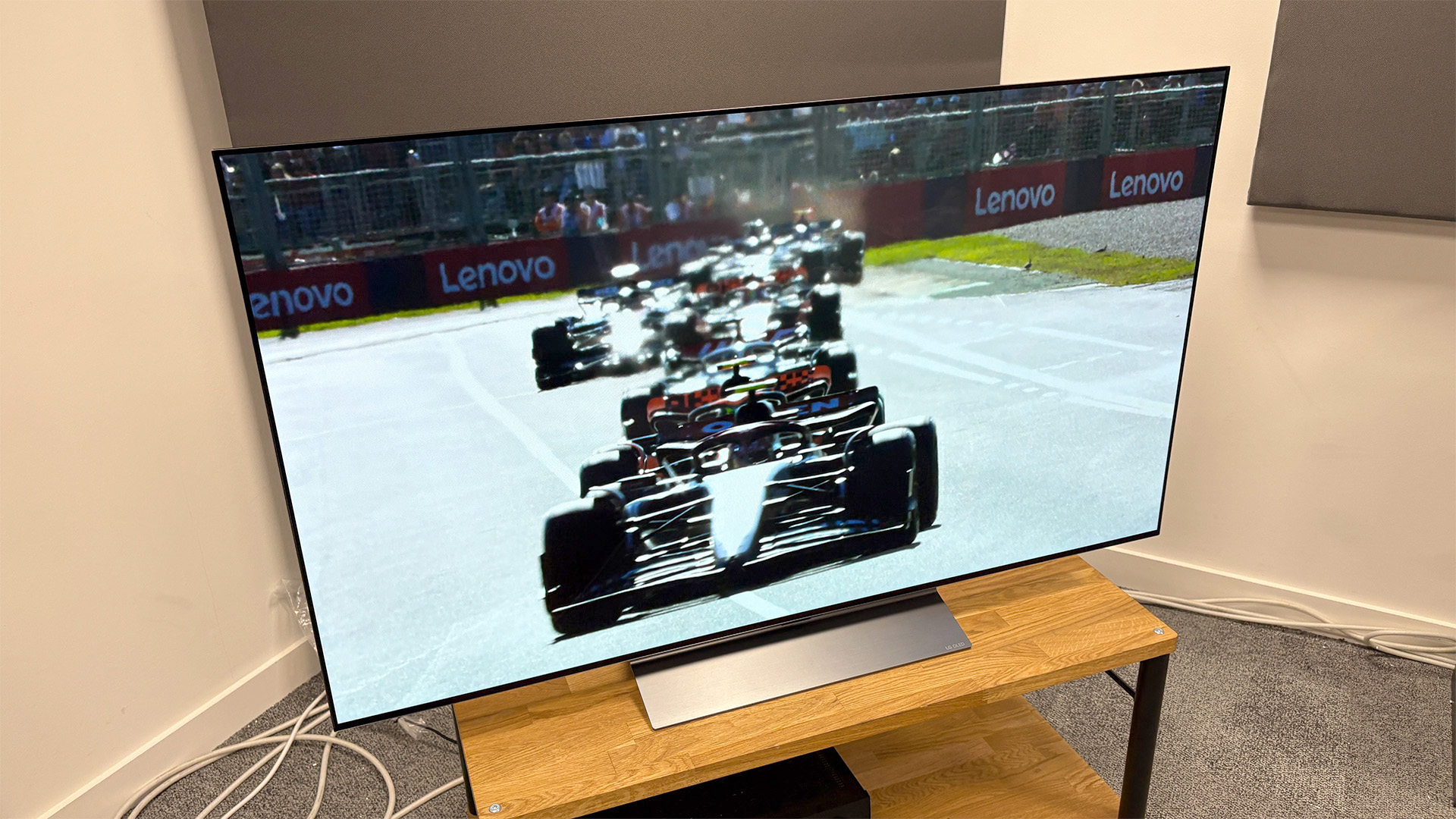
Now that we know how much it costs, we have no trouble recommending the LG C5. It's probably the best TV for most people, as its exceptional picture quality and uncompromising feature set are certified crowd pleasers. It remains an excellent choice for gamers, too, and its Dolby Vision Filmmaker mode is a major bonus for film buffs.
We wish it had better built-in audio, but considering how often we say this about OLED TVs of this stature, we're not surprised that it misses the mark here. Overall, the C5 delivers everything we were hoping for, even if it's not a generational leap over its predecessor.
SCORES
- Picture 5
- Sound 3
- Features 5
MORE:
Read our review of the LG C4
Also consider the Sony Bravia 8
Read our Philips OLED809 review
Best TVs: flagship OLEDs and affordable flatscreens tried and tested
Lewis Empson is a Senior Staff Writer on What Hi-Fi?. He was previously Gaming and Digital editor for Cardiff University's 'Quench Magazine', Lewis graduated in 2021 and has since worked on a selection of lifestyle magazines and regional newspapers. Outside of work, he enjoys gaming, gigs and regular cinema trips.
- Alastair StevensonEditor in Chief
You must confirm your public display name before commenting
Please logout and then login again, you will then be prompted to enter your display name.
